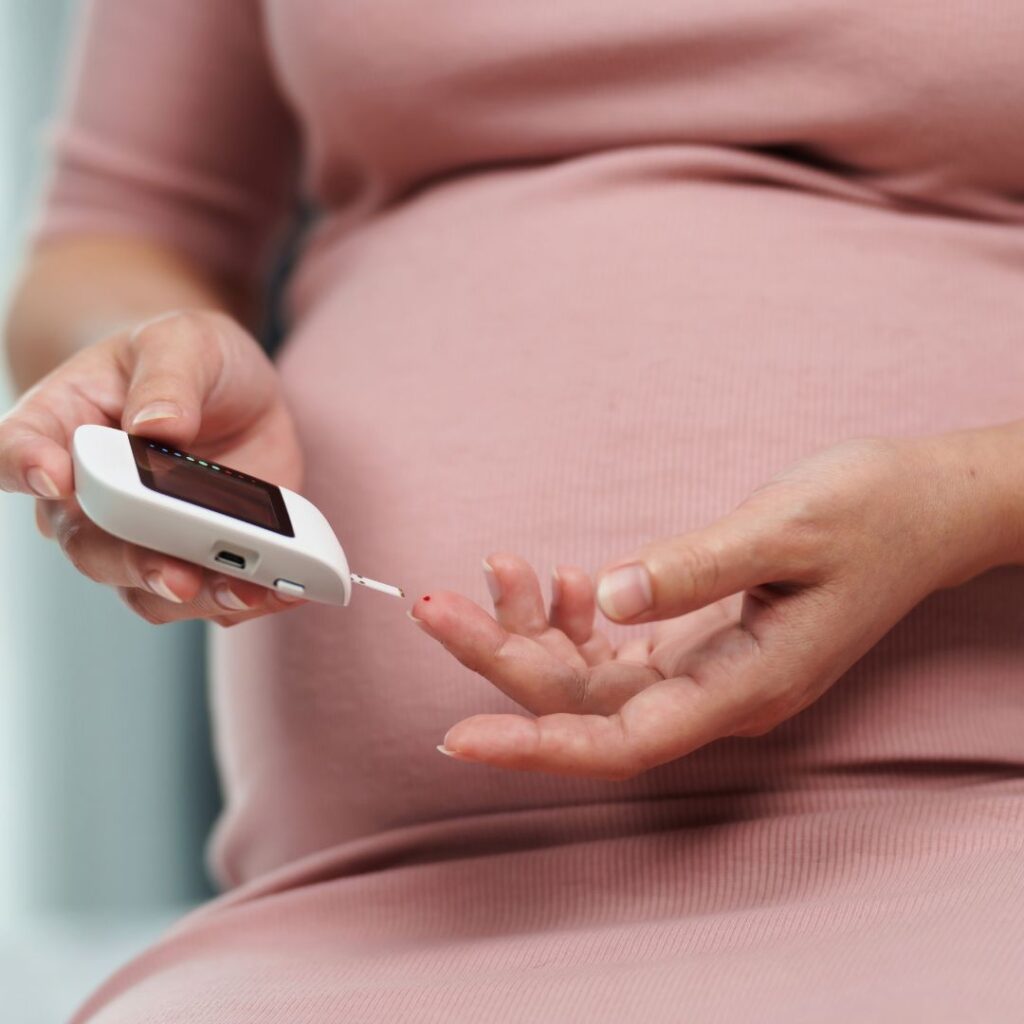We often associate insulin with blood sugar and diabetes, but it also plays a key role in regulating hormones that impact women’s reproductive health. Insulin resistance, a condition where cells become less responsive to insulin, can eventually lead to Type 2 diabetes and significantly affect hormonal balance. Let’s explore how both impact women’s health.
Understanding Insulin Resistance and Diabetes
What is Insulin Resistance?
Insulin resistance occurs when the body’s cells no longer respond properly to insulin, the hormone responsible for moving glucose (sugar) from the blood into cells. When cells resist insulin’s effects, blood sugar levels can remain elevated, prompting the pancreas to produce more insulin to compensate. Over time, this excess demand can exhaust the pancreas and lead to prediabetes or Type 2 diabetes if left unaddressed.
What is Diabetes?
Diabetes is a chronic condition in which the body cannot effectively regulate blood sugar. In Type 2 diabetes, persistent insulin resistance eventually leads to high blood glucose, while in Type 1 diabetes, the body’s immune system attacks insulin-producing cells in the pancreas. Both forms of diabetes can impact hormonal health, reproductive function, and overall well-being.
How Insulin Resistance and Diabetes Contribute to Hormonal Imbalances
Both insulin resistance and diabetes are associated with hormonal imbalances that can disrupt reproductive health. Here’s how they influence conditions like PCOS:
Polycystic Ovary Syndrome (PCOS)
PCOS is often associated with insulin resistance, as elevated insulin levels can trigger the ovaries to produce more androgens (male hormones), which disrupts regular ovulation and can contribute to PCOS symptoms. Women with diabetes, especially Type 2, may also be at a higher risk of developing PCOS.
Common Symptoms of PCOS (which can be aggravated by insulin resistance and diabetes):
- Acne
- Brain fog
- Fatigue
- Depression or anxiety
- Excess facial or body hair
- Hair loss
- Weight gain or difficulty losing weight
- Skin changes
- Irregular menstrual cycles
- Fertility issues
- Urinary Tract Infections (UTIs)
Women with diabetes are at a higher risk of urinary tract infections (UTIs) due to elevated blood sugar levels and a generally weakened immune response, which can make the body more susceptible to bacterial infections. According to a 2015 study by the National Institutes of Health, nearly 13% of women with newly diagnosed Type 2 diabetes developed a UTI within the first year.
Common Symptoms of a UTI:
- Painful urination
- Frequent urge to urinate
- Pressure in the lower abdomen
- Blood in the urine
- Cloudy or foul-smelling urine
- Fever (in cases of more serious infections)
The Impact of Insulin Resistance and Diabetes on Reproductive Health
Reproductive issues are common among women with both insulin resistance and diabetes due to their effects on hormone regulation and blood vessel health, which can affect fertility, menstrual cycles, and pregnancy outcomes.

Reproductive Health Effects Linked to Insulin Resistance and Diabetes:
- Delayed puberty: Both conditions can sometimes contribute to adolescents’ later onset of puberty.
- Menstrual irregularities: Insulin resistance and diabetes often lead to irregular menstrual cycles due to hormone disruptions.
- Infertility: Both conditions may increase the risk of fertility issues, especially when linked with PCOS.
- Early menopause: Women with diabetes may experience menopause earlier due to hormonal effects on ovarian function.
- Increased risk of miscarriage or stillbirth: Poorly controlled blood sugar levels in diabetic women may increase these risks.
For women who are planning to have children, proactive management with a healthcare provider can support better reproductive health outcomes.
For tips on advocating for your reproductive health, visit our blog here!
Insulin Resistance and Gestational Diabetes
Gestational diabetes is a temporary form of diabetes that occurs during pregnancy due to hormonal changes that make cells more resistant to insulin. While it can happen in women without prior insulin resistance, women who already have it are at higher risk for developing gestational diabetes. This condition typically occurs between the 24th and 28th weeks of pregnancy and is manageable with dietary changes, monitoring, and, if necessary, medication.
Managing Insulin Resistance and Diabetes for Better Reproductive Health
The good news is that both can often be managed and sometimes even prevented through lifestyle and medical interventions. Here are some strategies that may help:
- Adopt a balanced diet: Focus on nutrient-rich foods that help regulate blood sugar levels.
- Physical Activity: Regular exercise can improve insulin sensitivity. Being intentional about the timing and type of exercise can help manage glucose levels more effectively.
- Monitor blood sugar regularly: Both conditions benefit from routine monitoring to stay informed.
Consult your healthcare provider about treatment options: Medications such as metformin are commonly prescribed for managing insulin and diabetes. Certain supplements like inositol may be beneficial for those with PCOS, and newer medications like GLP-1 agonists (e.g., Ozempic) can be discussed for managing Type 2 diabetes.
Insulin Resistance, Diabetes, and Women’s Health
Insulin resistance and diabetes can significantly impact women’s health, particularly in areas related to hormonal balance and reproductive function. Staying informed and actively managing these conditions empowers you to take control of your health and make proactive choices for your future.

